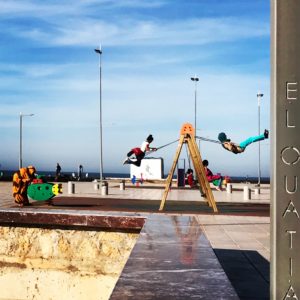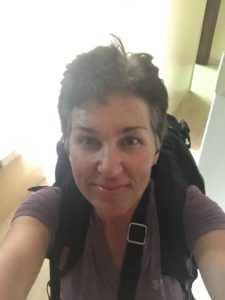 I spent January out tripping in West Africa. More specifically, over 30 days, I backpacked 3,800 km from Morocco to Senegal, using buses, minivans, mopeds, sept-place cars (seven-seater Peugeots), a horse-drawn cart, one ferry, a couple of quatre-quatre (4×4 Toyota trucks), and a brutal iron-ore train that, coincidentally, at two-and-a-half kilometers, ranks as the longest train in the world.
I spent January out tripping in West Africa. More specifically, over 30 days, I backpacked 3,800 km from Morocco to Senegal, using buses, minivans, mopeds, sept-place cars (seven-seater Peugeots), a horse-drawn cart, one ferry, a couple of quatre-quatre (4×4 Toyota trucks), and a brutal iron-ore train that, coincidentally, at two-and-a-half kilometers, ranks as the longest train in the world.
Aside from one five-hour stretch of vomiting (on which I blame Senegalese box wine) and a few rough transit days, it was exactly the trip I needed to help me get up and dust myself off from a couple of soul-crushing events in December. I plan to write about the adventure in some shape or form; for now, here are a few observations.
Being 50, with a newly shorn head and an androgynous travel wardrobe, will not prevent African men from propositioning you.
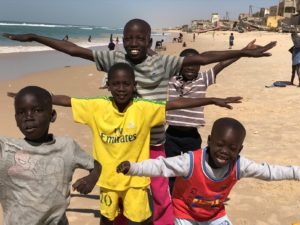 People maintain a beautiful commitment to family, rest time and community. But having a close-knit family doesn’t negate the stress of a lack of a reliable income and opportunities to earn money. Their governments have failed them in this regard, and hence they migrate. I met a trio of Gambian migrants—a married couple and another woman—in the immigration office at Mauritania’s northern frontier. They’d traveled 1,200 km before being caught. They later rode in my mini-bus, with a police escort, to the jail in Nouadhibou, where they would be processed and eventually deported. The wife was six months pregnant, and could only watch out the window as their steps were erased, the scenery she thought they’d left behind flying by once again. When I told the other woman that I liked her scarf, she offered to give it to me.
People maintain a beautiful commitment to family, rest time and community. But having a close-knit family doesn’t negate the stress of a lack of a reliable income and opportunities to earn money. Their governments have failed them in this regard, and hence they migrate. I met a trio of Gambian migrants—a married couple and another woman—in the immigration office at Mauritania’s northern frontier. They’d traveled 1,200 km before being caught. They later rode in my mini-bus, with a police escort, to the jail in Nouadhibou, where they would be processed and eventually deported. The wife was six months pregnant, and could only watch out the window as their steps were erased, the scenery she thought they’d left behind flying by once again. When I told the other woman that I liked her scarf, she offered to give it to me.
Morocco is the ninth-largest world producer of Mandarin oranges, and exports them regionally. Mandarins are abundant. I ate them the whole time.
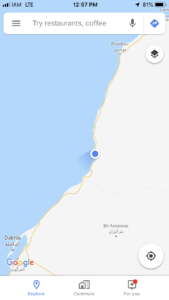 Kids are kids are kids. Bright eyed. Precocious. Full of possibility and potential. And yet still annoying when they call me “toubab” and ask for money.
Kids are kids are kids. Bright eyed. Precocious. Full of possibility and potential. And yet still annoying when they call me “toubab” and ask for money.
My T-Mobile partner cell service is considerably better on a one-lane highway in sparsely populated Western Sahara, with no towns for miles, than it is in Bellevue, Washington, two miles from T-Mobile headquarters.
China has a heavy presence in much of Africa, as it has for two decades. Its expats and companies are grudgingly tolerated in Mauritania. They build infrastructure in exchange for export contracts and access to natural resources, such as exclusive fishing zones off the Mauritanian coast. One byproduct of Chinese capital is that the Bay of Nouadhibou’s infamous ship graveyard is disappearing. It once held up to 300 corpses. Now there are about five left, the others having been cut up for scrap metal.
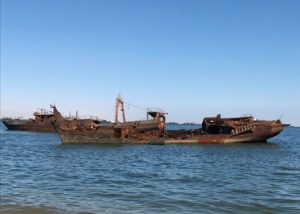
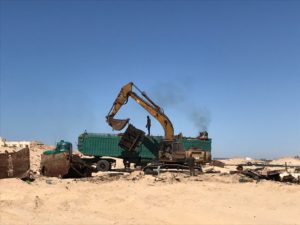
Sex tourism isn’t only in Thailand. Some fifty-plus-year-old French people hook up with young locals in Senegal. It even happened at my European-run auberge.
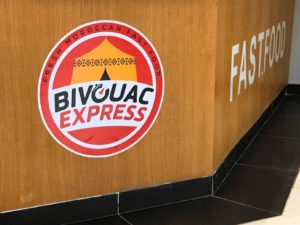 The restaurant doesn’t have to be fancy for the food to be really damn fine. Example: Chez N’Tifi in Dakhla, Western Sahara. Also, I love that Dakhla has a fast-food joint called Bivouac Express.
The restaurant doesn’t have to be fancy for the food to be really damn fine. Example: Chez N’Tifi in Dakhla, Western Sahara. Also, I love that Dakhla has a fast-food joint called Bivouac Express.
There will be a lot of police checkpoints, and at many, they will ask for your passport and spend 10 minutes writing down the relevant data. In Mauritania, you can get ahead of the game by creating a “fiche” with all of the needed information. Once you find the only shop for miles that makes photocopies, run about 20, then hand one over to the checkpoint officer before he even has a chance to finish his sentence. As the only foreigner in the vehicle, watch your popularity increase among the other passengers when your rad prep skills spare them the extra-long stop.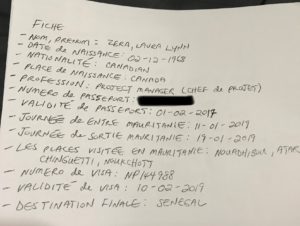
It’s disheartening to see my share value drop in everyone’s eyes as soon as I tell them I don’t have children, and they almost recoil if I include that it’s because I don’t want children. It’s disturbing and heartbreaking to hear stories of ongoing female genital mutilation and child marriage. I pray for a day when girls and women around the world have full agency and equality.
